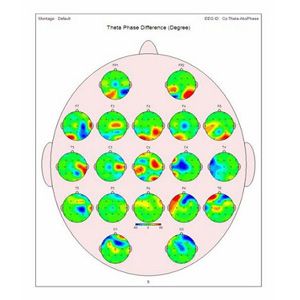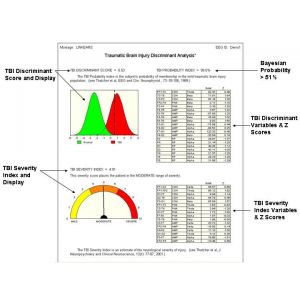We use cookies to make your experience better. To comply with the new e-Privacy directive, we need to ask for your consent to set the cookies. Learn more.
Brain Performance Index for NeuroGuide [BPI]
- Weschler Intelligence Test & EEG recordings
- 339 normal control subjects, ages 6-18 years
- 19 channel, linked ear, eyes closed recordings
- Requires NeuroGuide
In Stock
Brain Performance Index (BPI) is an estimate of the efficiency of neural resource allocation.
The Wechsler Intelligence test (i.e., mazes, coding, block design, digit span, picture completion, math, vocabulary, verbal I.Q., performance I.Q., full scale I.Q) and EEG was recorded from 19 channels with linked ears reference in the eyes closed condition from 339 normal control subjects, age 6 to 18 years of age.
Brain Performance Index is not designed to replace a neuropsychological test, but rather to compliment neuropsychological evaluations, especially where a patient has problems taking a conventional neuropsychological test, or when one wants to rapidly repeat the test.
EEG variables that correlated at P < .01 were entered into a multivariate regression analysis called the Brain Performance Index (BPI) in which individual neuropsychological sub-tests were the dependent variable and EEG Phase delays, EEG coherence, EEG amplitude asymmetry and EEG power were the independent variables.
The multivariate regression equations, referred to as the Predicted Neuropsychological Score (PNS), also compute the + and – 95% confidence band as a EEG prediction of performance on each neuropsychological test.
The correlation to I.Q. was approximately 0.58 and involved short time delays between the frontal lobes and the rest of the brain (faster resource allocation, elevated power (more energy) and lower coherence (high complexity). These three combined measures give rise to an overall prediction of the efficiency of neural resource allocation.
Requires: NeuroGuide
System Requirements
Requires Neuroguide Deluxe




![NeuroBatch for NeuroGuide [NB]](https://cdn.bio-medical.com/media/catalog/product/cache/00c9284826f59a866608df47e7e7882c/n/e/neurobatch_control.jpg)
![NeuroGuide Deluxe QEEG - [NG]](https://cdn.bio-medical.com/media/catalog/product/cache/00c9284826f59a866608df47e7e7882c/l/o/logo-neuroguide.png)
![Neurostat for NeuroGuide - [NS]](https://cdn.bio-medical.com/media/catalog/product/cache/00c9284826f59a866608df47e7e7882c/p/a/paired_t-tests-loreta-allslices.jpg)
